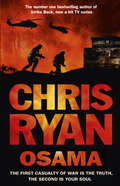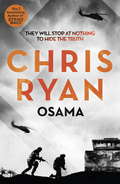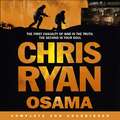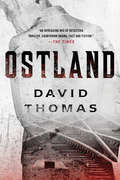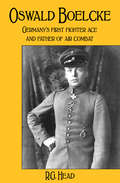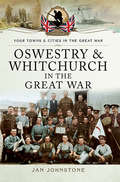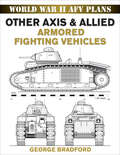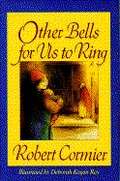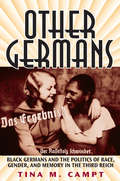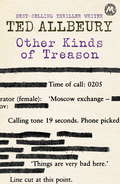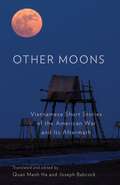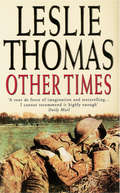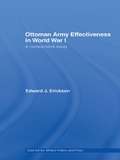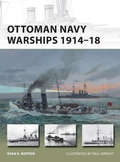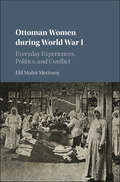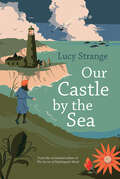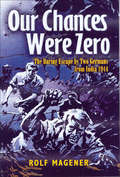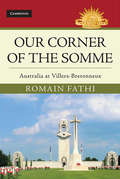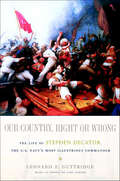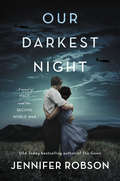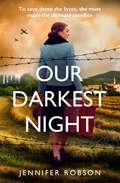- Table View
- List View
Osama: The First Casualty of War is the Truth, the Second is Your Soul
by Chris RyanDespatches from the secret world behind the headlines. Former SAS legend Chris Ryan brings you his seventeenth novel, filled with his trademark action, thrills and inside knowledge. Osama Bin Laden is dead. The President of the United States knows it. The world knows it. And SAS hero Joe Mansfield knows it. He was on the ground in Pakistan when it happened. He saw Seal Team 6 go in, and he saw them extract with their grisly cargo. He was in the right place at the right time. Or maybe, the wrong place at the wrong time. Because now, somebody wants Joe dead, and they're willing to do anything to make it happen. His world is violently dismantled. His family is targeted, his reputation destroyed. And as a mysterious and ruthless enemy plans a devastating terror attack on both sides of the Atlantic, Joe knows this: his only chance of survival is to find out what happened in Bin Laden's compound the night the Americans went in. But an unseen, menacing power has footprints it needs to cover. And it will stop at nothing to prevent him uncovering the sinister truth...
Osama: The first casualty of war is the truth, the second is your soul
by Chris RyanFrom the author of the bestselling Danny Black series and the hit TV show Strikeback.Despatches from the secret world behind the headlines. Former SAS legend Chris Ryan brings you his seventeenth novel, filled with his trademark action, thrills and inside knowledge. Osama Bin Laden is dead.The President of the United States knows it. The world knows it. And SAS hero Joe Mansfield knows it. He was on the ground in Pakistan when it happened. He saw Seal Team 6 go in, and he saw them extract with their grisly cargo. He was in the right place at the right time.Or maybe, the wrong place at the wrong time.Because now, somebody wants Joe dead, and they're willing to do anything to make it happen. His world is violently dismantled. His family is targeted, his reputation destroyed. And as a mysterious and ruthless enemy plans a devastating terror attack on both sides of the Atlantic, Joe knows this: his only chance of survival is to find out what happened in Bin Laden's compound the night the Americans went in.But an unseen, menacing power has footprints it needs to cover. And it will stop at nothing to prevent him uncovering the sinister truth...
Osama: The first casualty of war is the truth, the second is your soul
by Chris RyanDespatches from the secret world behind the headlines. Former SAS legend Chris Ryan brings you his seventeenth novel, filled with his trademark action, thrills and inside knowledge. Osama Bin Laden is dead.The President of the United States knows it. The world knows it. And SAS hero Joe Mansfield knows it. He was on the ground in Pakistan when it happened. He saw Seal Team 6 go in, and he saw them extract with their grisly cargo. He was in the right place at the right time.Or maybe, the wrong place at the wrong time.Because now, somebody wants Joe dead, and they're willing to do anything to make it happen. His world is violently dismantled. His family is targeted, his reputation destroyed. And as a mysterious and ruthless enemy plans a devastating terror attack on both sides of the Atlantic, Joe knows this: his only chance of survival is to find out what happened in Bin Laden's compound the night the Americans went in.But an unseen, menacing power has footprints it needs to cover. And it will stop at nothing to prevent him uncovering the sinister truth...
Osama: The first casualty of war is the truth, the second is your soul
by Chris RyanDespatches from the secret world behind the headlines. Former SAS legend Chris Ryan brings you his seventeenth novel, filled with his trademark action, thrills and inside knowledge. Osama Bin Laden is dead.The President of the United States knows it. The world knows it. And SAS hero Joe Mansfield knows it. He was on the ground in Pakistan when it happened. He saw Seal Team 6 go in, and he saw them extract with their grisly cargo. He was in the right place at the right time.Or maybe, the wrong place at the wrong time.Because now, somebody wants Joe dead, and they're willing to do anything to make it happen. His world is violently dismantled. His family is targeted, his reputation destroyed. And as a mysterious and ruthless enemy plans a devastating terror attack on both sides of the Atlantic, Joe knows this: his only chance of survival is to find out what happened in Bin Laden's compound the night the Americans went in.But an unseen, menacing power has footprints it needs to cover. And it will stop at nothing to prevent him uncovering the sinister truth...(P)2012 Hodder & Stoughton
Ostland
by David ThomasBased on a horrifying true story of one of the Holocaust's worst Nazi war criminals comes a crime thriller that combines a police procedural, courtroom thriller, and a fast-paced war-time narrative. In Ostland David Thomas confronts the question of how does one man charged with eradicating evil become one of its greatest perpetrator. In wartime Berlin the brilliant, idealistic young detective Georg Heuser joins the Murder Squad in the midst of the biggest manhunt the city has ever seen. A serial killer is slaughtering women on S-Bahn trains and leaving their battered bodies by the tracks. Heuser must confront evil eye-to-eye as he helps track down the murderer. Soon after, Heuser is promoted by the SS and sent off to oversee the systematic murder of thousands of Jews in the new empire the Nazis call Ostland. Years after the end of the war Heuser thinks his diabolical past has been forgotten. Yet, an enterprising young lawyer, Paula Siebert, searching through Soviet archives, discovers Heuser and his fellow officers' crimes. Siebert is haunted by one question: how could a once decent man have become a sadistic monster? Desperate to cover his tracks, Heuser uses his training as a lawyer and years as a police detective to distance himself from his co-conspirators and escape justice. Ostland is a gripping detective thriller, a harrowing account of the Holocaust and a thought-provoking examination of the human capacity for evil.
Oswald Boelcke: Germany's First Fighter Ace and Father of Air Combat
by R.G. HeadThis biography of the pioneering WWI flying ace who mentored the Red Baron is &“fascinating . . . [it] captures combat aviation at its inception&” (MiG Sweep: The Magazine of Aviation Warriors). With a total of forty victories, Oswald Boelcke was Germany&’s first ace in World War I—and a century later he remains a towering figure in the history of air warfare, renowned for his character, inspirational leadership, organizational genius, development of air-to-air tactics, and impact on aerial doctrine. Paving the way for modern air forces across the world with his pioneering strategies, Boelcke had a dramatic effect on his contemporaries. The famed Red Baron&’s mentor, instructor, squadron commander, and friend, he exerted a tremendous influence upon the German air force. He was one of the first pilots to be awarded the famous Pour le Mérite, commonly recognized as the &“Blue Max.&” All of this was achieved after overcoming medical obstacles in childhood and later life with willpower and determination. Boelcke even gained the admiration of his enemies: After his tragic death in a midair collision, Britain&’s Royal Flying Corps dropped a wreath on his funeral, and several of his captured foes sent another wreath from their German prison camp. His name and legacy live on, as seen in the Luftwaffe&’s designation of the Tactical Air Force Wing 31 &“Boelcke.&” This definitive biography reveals his importance as a fighter pilot who set the standard in military aviation.
Oswestry & Whitchurch in the Great War (Your Towns & Cities in the Great War)
by Janet JohnstoneAt the outbreak of hostilities, Oswestry and Whitchurch in rural north Shropshire were busy market towns that depended largely on agriculture for a living and justly famed for butter and cheese production. Within weeks of Lord Kitcheners impassioned call for volunteers, scores of local men, many employed in farm work, had accepted the kings shilling and travelled to training camps, some never to return.Those left behind were soon experiencing changes, as rules and regulations were swiftly implemented by the Defence of the Realm Act. Food shortages became apparent, rationing was introduced, private houses were turned into auxiliary hospitals, Belgium refugees arrived, and lighting restrictions came into force. Shortages of men resulted in women taking on the mens tasks; they coped very successfully, leading to lasting changes in attitude.Two of the biggest training camps in the country Park Hall, Oswestry and Prees Heath, Whitchurch were constructed on land just a few miles distant from the towns boundaries, and people had to learn quickly to cope with a massive influx of soldiers. Photographs illustrating the building of one of the camps have been included in this book, to demonstrate just how much was achieved in such a short period of time.Using information and illustrations gleaned from various sources, this book endeavours to paint a true picture of what life was like on the Home Front throughout the conflict, and hopes to keep alive the memory of the men who fought in the war and the women and children who remained at home anxiously waiting for their loved ones to return.
Other Axis & Allied Armored Fighting Vehicles: World War II AFV Plans (AFV Plans)
by George BradfordThis fully illustrated volume presents an authoritative and highly detailed study of WWII&’s lesser-known armored fighting vehicles. The iconic tanks of WWII, such as America&’s Shermans and the Germany&’s Panzers, have been exhaustively studied. In Other Axis & Allied Armored Fighting Vehicles, military historian and technical artist George Bradford offers an in-depth look at a range of significant yet often-overlooked models. This volume is filled with fine-scale drawings of Australian, Belgian, Canadian, Czech, French, Hungarian, Italian, Japanese, Polish, Romanian, and South African armored vehicles, including: · Centauro Tank Destroyer (Italy) · TKS Light Reconnaissance Tank (Poland) · Ram &“Kangaroo&” Personnel Carrier (Canada) · Renault R-35 Light Tank (France) · Type 3 Chi-nu Heavy Tank (Japan) · Scorpion AC1 Cruiser Tank (Australia) · TACAM R-2 Tank Hunter (Romania) · And many, many more . . .
Other Bells for Us to Ring
by Robert Cormier[From the front flap:] "At eleven, Darcy has never had a best friend, but this summer she's met the unsinkable Kathleen Mary O'Hara, who, like Darcy, is an outsider in Frenchtown. Darcy has never lived for long in any one place, but it's wartime and her father is in the army somewhere in Europe. Because her own family is Unitarian, Darcy is spellbound by Kathleen Mary's vivid tales about Catholicism. But after that careless baptism, she's stunned. A bit of holy water can't make you a Catholic, or can it? Was Kathleen Mary joking? Must she now go to church every Sunday? Can she eat meat on Friday? Then Kathleen Marry and her family disappear from Frenchtown, and Darcy waits in vain for word from her friend who promised she'd never leave her. Soon after, Darcy learns that her father is missing in action. Desperate and forlorn, Darcy seeks out an old nun known for her spiritual wisdom. Religion is about love, the nun tells her, and about miracles. It's Christmas now, but Darcy remains unsure about the power of God's love until she gets a message from Kathleen Mary--in the form of a miracle. Robert Cormier's first book for children is a touching and profound portrayal of Darcy's curiosity--and doubt--about faith that will appeal to all those who struggle to make sense of a bewildering world." Readers will sympathize with the feelings of eleven-year-olds and learn about life and situations of families whose loved ones served in the armed forces during World War II. Practices of Catholicism and Unitarianism are seen simply through the eyes of children and the point made that there are many ways to God which, no matter what the religion, involve faith and love.
Other Echoes
by Adele GerasEighteen-year-old Flora is recovering from "nervous exhaustion" in the sanatorium at her boarding school. She is supposed to rest. But the rest brings back her childhood memories of living in Borneo, where she encountered people and events shaped by the tragedies of the Second World War, when the island was occupied by Japanese soldiers and their concentration camps. Award-winning author Adèle Geras weaves the captivating story of a young woman who, by coming to terms with her memories of the past, is able to move on to a new phase of her life.From the Hardcover edition.
Other Germans: Black Germans and the Politics of Race, Gender, and Memory in the Third Reich
by Tina CamptTina M. Campt's Other Germans tells the story of Germany's black citizens and the complicated ways in which members of this population managed to survive Germany's most painful and perplexing epoch, the Third Reich. Most strikingly, Campt focuses her pathbreaking study of the Holocaust primarily on race, rather than anti-Semitism. By centering on Germany's Black community rather than its Jewish population, Campt examines the Holocaust not through the history of anti-Semitism but through the ideology of racial purity that fueled the regime's fundamental organization. From this vantage point, the book reveals how, in the service of "racial purity," the regime produced some of the very subjects it ultimately sought to destroy. Book jacket.
Other Kinds Of Treason
by Ted AllbeuryA collection of twelve short stories of love, war and betrayal from master thriller writer Ted Allbeury.
Other Kinds Of Treason
by Ted AllbeuryA collection of twelve short stories of love, war and betrayal from master thriller writer Ted Allbeury.
Other Moons: Vietnamese Short Stories of the American War and Its Aftermath
by Quan Manh Ha and Joseph BabcockIn this anthology, Vietnamese writers describe their experience of what they call the American War and its lasting legacy through the lens of their own vital artistic visions. A North Vietnamese soldier forms a bond with an abandoned puppy. Cousins find their lives upended by the revelation that their fathers fought on opposite sides of the war. Two lonely veterans in Hanoi meet years after the war has ended through a newspaper dating service. A psychic assists the search for the body of a long-vanished soldier. The father of a girl suffering from dioxin poisoning struggles with corrupt local officials.The twenty short stories collected in Other Moons range from the intensely personal to narratives that deal with larger questions of remembrance, trauma, and healing. By a diverse set of authors, including many veterans, they span styles from social realism to tales of the fantastic. Yet whether describing the effects of Agent Orange exposure or telling ghost stories, all speak to the unresolved legacy of a conflict that still haunts Vietnam. Among the most widely anthologized and popular pieces of short fiction about the war in Vietnam, these works appear here for the first time in English. Other Moons offers Anglophone audiences an unparalleled opportunity to experience how the Vietnamese think and write about the conflict that consumed their country from 1954 to 1975—a perspective still largely missing from American narratives.
Other Times
by Leslie ThomasAt the start of the war in 1939 James Bevan is a junior officer approaching middle-age, attached to a small anti-aircraft unit on the south coast.Abandoned by his wife, the soldiers he command are his family: Bairnsfather, whose sexual encounters with his girl friend Muriel take place in an air-raid shelter; Cartwright, trying to keep two women on his gunner's pay of a shilling a day; Hignet, cosily educating himself in the orderly room. It is a rude awakening when they are called upon for the real war.Hugely absorbing, rich and rewarding, Other Times brims with history and experience, love, sorrow and humour.
Otterburn 1388
by Stephen Walsh Peter ArmstrongIn his Chronicles, Froissart describes Otterburn as 'the best fought and the most severe' battle of his time. Fought at Redesdale in Northumberland in August 1388, the battle originated from the ongoing war between the Scots and the English following Robert Bruce's victory over the English at Bannockburn in 1314. Using all the contemporary sources, this book details the events that led up to the clash on the borders, examines the opposing armies, their weaponry and their commanders - including the Douglases on the Scots side and the Percys on the English - and gives a full account of the battle and its aftermath.
Ottoman Army Effectiveness in World War I: A Comparative Study (Military History And Policy Ser.)
by Edward J. EricksonThis volume examines how the Ottoman Army was able to evolve and maintain a high level of overall combat effectiveness despite the primitive nature of the Ottoman State during the First World War. Structured around four case studies, at the operational and tactical level, of campaigns involving the Ottoman Empire and the British Empire: Gallipoli i
Ottoman Navy Warships 1914-18
by Paul Wright Ryan NoppenAt the start of the 20th century the Ottoman Navy was a shadow of its former might, a reflection of the empire as a whole - the "Sick Man of Europe". Years of defeat, nepotism, and neglect had left the Ottoman Navy with a mix of obsolete vessels, whilst the list of prospective enemies was ever-growing. An increasing Russian naval presence in the Black Sea and the alarming emergence of Italy and Greece as regional Naval powers proved beyond all doubt that intensive modernization was essential, indeed, the fate of the Empire as a naval power depended on it. So the Ottoman Navy looked to the ultimate naval weapon of the age, the dreadnought battleship, two of which were ordered from the British with extreme alacrity. But politics intervened, and a succession of events culminated in the Ottoman Navy fielding a modern German battlecruiser and state-of-the-art light cruiser instead - with dramatic consequences. In this meticulous study, Ryan Noppen presents a fresh appraisal of the technical aspects and operations of the warships of the Ottoman Navy in World War I. It is the first work of its kind in the English language - produced with a wealth of rare material with the cooperation of the Turkish Consulate and Navy. Packed with precise technical specifications, revealing illustrations and exhaustive research, this is an essential guide to a crucial chapter in the Aegean arms raceFrom the Trade Paperback edition.
Ottoman Women during World War I: Everyday Experiences, Politics, and Conflict
by Metinsoy Elif MahirDuring war time, the everyday experiences of ordinary people - and especially women - are frequently obscured by elite military and social analysis. In this pioneering study, Elif Mahir Metinsoy focuses on the lives of ordinary Muslim women living in the Ottoman Empire during the First World War. It reveals not only their wartime problems, but also those of everyday life on the Ottoman home front. It questions the existing literature's excessive focus on the Ottoman middle-class, using new archive sources such as women's petitions to extend the scope of Ottoman-Turkish women's history. Free from academic jargon, and supported by original illustrations and maps, it will appeal to researchers of gender history, Middle Eastern and social history. By showing women's resistance to war mobilization, wartime work life and the everyday struggles which shaped state politics, Mahir Metinsoy allows readers to draw intriguing comparisons between the past and the current events of today's Middle East.
Our Castle by the Sea
by Lucy StrangeIn this haunting and compelling follow-up to The Secret of Nightingale Wood, Lucy Strange takes a seafaring myth and grounds it in the stark reality of World War II.Growing up in a lighthouse, 11-year-old Pet's world has been one of storms, secret tunnels, and stories about sea monsters. But now the country is at war and the cliff tops are a terrifying battleground. Pet will need to muster all her bravery to uncover why her family is being torn apart. This is the story of a girl who is afraid and unnoticed. A girl who freezes with fear at the enemy planes ripping through the skies overheard. A girl who is somehow destined to become part of the strange, ancient legend of the Daughters of Stone.
Our Chances were Zero: The Daring Escape by two German POW's from India in 1942
by Rolf MagenerDuring World War II the British imprisoned many German and Italian prisoners of war and civilian internees in India. The less co-operative prisoners were kept under harsh conditions in camps in the Himalayan foothills. The author was a German civilian working in India at the outbreak of war and was promptly interned by the British. In 1942 Magener and another prisoner, Heins von Have, finally managed to escape. Getting out of the camp was only the prelude to the difficult task of making their way across the entire Indian sub-continent in an attempt to reach friendly territory. Disguising themselves as British officers, the two Germans made an epic journey across India and through British forces on the Burma frontier in an attempt to link up with advancing Japanese forces. Ironically, the Japanese unit they finally located did not believe their story and they came close to being executed as spies.His grippingly told personal narrative of a German's escape from Allied custody is unique in the annals of prisoner-of-war escape and evasion.
Our Corner of the Somme: Australia at Villers-Bretonneux (Australian Army History Series)
by Romain FathiBy the time of the Armstice, Villers-Bretonneux - once a lively and flourishing French town - had been largely destroyed, and half its population had fled or died. From March to August 1918, Villers-Bretonneux formed part of an active front line, at which Australian troops were heavily involved. As a result, it holds a significant place in Australian history. Villers-Bretonneux has since become an open-air memorial to Australia's participation in the First World War. Successive Australian governments have valourised the Australian engagement, contributing to an evolving Anzac narrative that has become entrenched in Australia's national identity. Our Corner of the Somme provides an eye-opening analysis of the memorialisation of Australia's role on the Western Front and the Anzac mythology that so heavily contributes to Australians' understanding of themselves. In this rigorous and richly detailed study, Romain Fathi challenges accepted historiography by examining the assembly, projection and performance of Australia's national identity in northern France.
Our Country, Right or Wrong: The Life of Stephen Decatur, the U.S. Navy's Most Illustrious Commander
by Leonard F. GuttridgeBlazing sea fights and undercurrents of intrigue: these are among the compelling ingredients of a biography that brings to life the most illustrious and formidable figure of the United States Navy. His name is carried by more than two dozen towns and cities. Here at last is a full exploration of Stephen Decatur's complex character. Reckless in youth, cool yet audacious in combat, loved by those who sailed under his command yet plotted against by rivals in the race for glory, Decatur is brought to life in this enthralling sea story.Decatur's heroism became widespread news in 1804 when, sent to reclaim a captured U.S. vessel from Tripoli in the Barbary Wars, he ordered his men to set fire to the captured vessel and proceed to attack the sailors of the Tripoli fleet in hand-to-hand combat. His brilliance continued through the War of 1812, after which he was promoted to the highest naval rank of Commodore. Decatur not only proved dauntless on the quarterdeck but amazingly effective in Mediterranean diplomacy. His spectacular dealings with Islamic powers presaged America's twenty-first century involvement in the region.Readers will also learn the identity of the woman he forsook for a sophisticated beauty pursued by suitors as varied as Napoleon Bonaparte's younger brother and Aaron Burr. Through freshly discovered documents, many official, some intensely personal, biographer Leonard Guttridge traces the elements that sped Decatur inexorably into the shadow of murder. Here, at last, is the full story of the man who raised the most memorable toasts in the history of American celebrations, when he declared in 1816 "Our country! In her intercourse with foreign nations may she always be in the right; but our country, right or wrong!" At the Publisher's request, this title is being sold without Digital Rights Management Software (DRM) applied.
Our Darkest Night: A Novel of Italy and the Second World War
by Jennifer RobsonTo survive the Holocaust, a young Jewish woman must pose as a Christian farmer’s wife in this unforgettable novel from USA Today bestselling author Jennifer Robson—a story of terror, hope, love, and sacrifice, inspired by true events, that vividly evokes the most perilous days of World War II.It is the autumn of 1943, and life is becoming increasingly perilous for Italian Jews like the Mazin family. With Nazi Germany now occupying most of her beloved homeland, and the threat of imprisonment and deportation growing ever more certain, Antonina Mazin has but one hope to survive—to leave Venice and her beloved parents and hide in the countryside with a man she has only just met.Nico Gerardi was studying for the priesthood until circumstances forced him to leave the seminary to run his family’s farm. A moral and just man, he could not stand by when the fascists and Nazis began taking innocent lives. Rather than risk a perilous escape across the mountains, Nina will pose as his new bride. And to keep her safe and protect secrets of his own, Nico and Nina must convince prying eyes they are happily married and in love.But farm life is not easy for a cultured city girl who dreams of becoming a doctor like her father, and Nico’s provincial neighbors are wary of this soft and educated woman they do not know. Even worse, their distrust is shared by a local Nazi official with a vendetta against Nico. The more he learns of Nina, the more his suspicions grow—and with them his determination to exact revenge. As Nina and Nico come to know each other, their feelings deepen, transforming their relationship into much more than a charade. Yet both fear that every passing day brings them closer to being torn apart . . .
Our Darkest Night: Inspired by true events, a powerfully moving story of love and sacrifice in World War Two Italy
by Jennifer RobsonTO SAVE THOSE SHE LOVES, SHE MUST MAKE THE ULTIMATE SACRIFICE.In Our Darkest Night, internationally bestselling author of The Gown, Jennifer Robson, tells an unforgettable story of terror, hope, love, and sacrifice, that vividly evokes the most perilous days of World War II.Inspired by true events. Perfect for readers of The Tattooist of Auschwitz by Heather Morris, The Child on Platform One by Gill Thompson and The Girl I Left Behind by Andie Newton.'A tale of devastating simplicity and poignant sweetness' Kate Quinn 'A powerful, emotional, and unflinching story of love, sacrifice, and resilience' Chanel Cleeton 'Haunting and inspiring, heartbreaking and hopeful, this novel is unforgettable' Kristin Beck Venice, 1943: Under the Nazi occupation, life is increasingly perilous for Italian Jews. Antonina Mazin has but one hope to survive - to leave her beloved parents and hide in the countryside, posing as the bride of a man she has only just met. Nico Gerardi was studying for the priesthood until circumstances forced him to return home to run his family's farm. A moral and just man, he refuses to remain a bystander to Nazi and fascist atrocities. The only way to keep Nina safe - and protect secrets of his own - is to convince prying eyes that their sudden marriage is a love match. But farm life is not easy for a cultured city girl who dreams of becoming a doctor like her father, and Nico's provincial neighbours are wary of this soft, educated stranger. Even worse, their distrust is shared by a local Nazi official with a vendetta against Nico. As Nina and Nico come to know each other, their relationship deepens, transforming into much more than a charade. Yet both fear that every passing day brings them closer to being torn apart...Don't miss Jennifer's enthralling historical novel about one of the most famous wedding dresses of the twentieth century - Queen Elizabeth's wedding gown - and the fascinating women who made it. Perfect for anyone who's captivated by The Crown, The Gown 'will dazzle and delight' (Independent).
